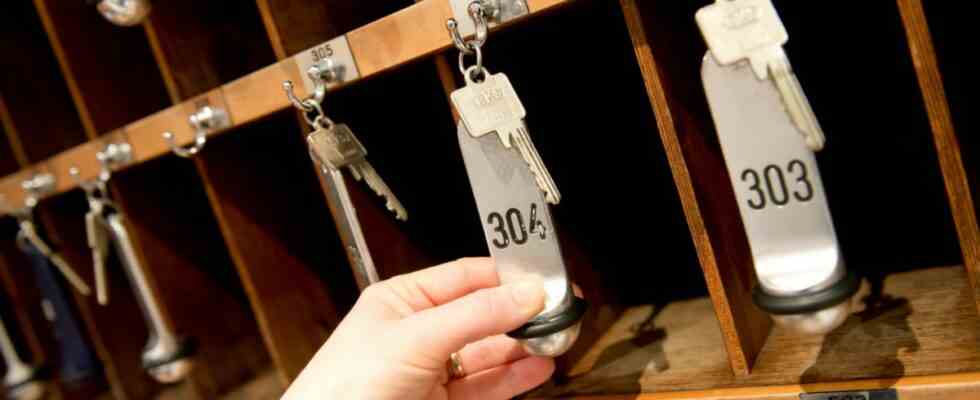Anyone who travels to Dresden, Münster or Frankfurt am Main already pays it: an accommodation tax, also known as a bed tax. Tourists benefit from the infrastructure of a city, so they can also participate a little – that’s the idea behind it. Munich also wants to introduce such a tax, as the first municipality in Bavaria, preferably from September. The finance department proposes five percent of the overnight price, and hopes that this will result in additional income of 60 to 80 million euros per year. The introduction of the tax is to be decided by the city council’s finance committee on Tuesday.
But that doesn’t mean it’s actually coming soon. In the economy, the plans of treasurer Christoph Frey (SPD) met with sharp rejection last November. The CSU-led state government then promptly announced that it wanted to ban the tax – and to change the municipal tax law to do so. The interior committee of the state parliament has now voted in favor of the ban. The topic is on the agenda for next Thursday’s plenary session.
Mayor Dieter Reiter (SPD) announced at the end of last year that the city would sue against the planned ban. The city expects good chances because the Federal Constitutional Court has recently rejected several complaints against the bed tax.
This view is now also supported by a legal opinion for the Treasury. “There are good reasons to believe that a state law prohibiting an overnight stay tax would be incompatible with municipal financial sovereignty,” it says. A ban could also be “disproportionate”.
The government of Upper Bavaria is pushing for the city to generate revenue
The German Hotel and Restaurant Association described the planned introduction of the bed tax at the end of last year as a “breach of trust”. Criticism also came from the Munich Tourism Initiative (TIM), an association that helps shape Munich’s tourism marketing. “We were quite alienated,” says TIM Managing Director Michael Hoeflich. Since then, talks have been held with the factions in the city council, but these have “brought no countable results for us”. If the tax is passed, there is no choice but to terminate the cooperation agreement between the city and TIM. It regulates how the private sector and the city work together in tourism marketing.
Nevertheless, TIM “certainly does not want to slam all the doors”. Because actually, so Höflich, you work very well together with the city. However, the initiative still rejects a bed tax. Not so much because of the private tourists, but above all because of the event area: At congresses, conferences, trade fairs and events, the overnight price has played a significantly larger role since the pandemic, especially since the prices in Munich are high anyway. Organizers calculated very precisely.
The Greens now want to introduce a minimum tax limit of 50 euros; Youth hostels should be exempt, as city councilor Beppo Brem explains. According to TIM managing director Höflich, this is a concession for smaller houses – but overall such exceptions do not play a major role.
The Greens want to discuss details, the SPD is surprised
The coalition partner in the town hall is wondering why such details should now be discussed when it is foreseeable that the state parliament will shortly afterwards ban the tax in general. In any case, the Greens would not have discussed these desired changes with the SPD parliamentary group, says their financial policy spokesman Christian Köning.
The Munich MP and parliamentary group leader of the Greens in the state parliament, Florian Siekmann, recently asked the state government to find out more about the feared effects of the bed tax. The answer shows that the state government has not made any impact assessment, says Siekmann. In order to enforce its “ban club”, the state government uses an “unworthy maneuver”. Because the topic is hidden on the agenda for the state parliament plenary session under the item “Amendment of the Bavarian law for the implementation of the federal registration law and other legal provisions”.
And what effects would a bed tax have on the economy in Munich? So far there have been no surveys from Germany, but the report for the Treasury mentions studies from the USA. These would have shown that an overnight stay tax “has (hardly) any measurable influence on the tourism industry”.
Last but not least, it is pointed out what the government of Upper Bavaria, as the supervisory authority, said when it approved the Munich budget for 2021: that it was “urgent” to “take full advantage of the city’s revenue opportunities”.

